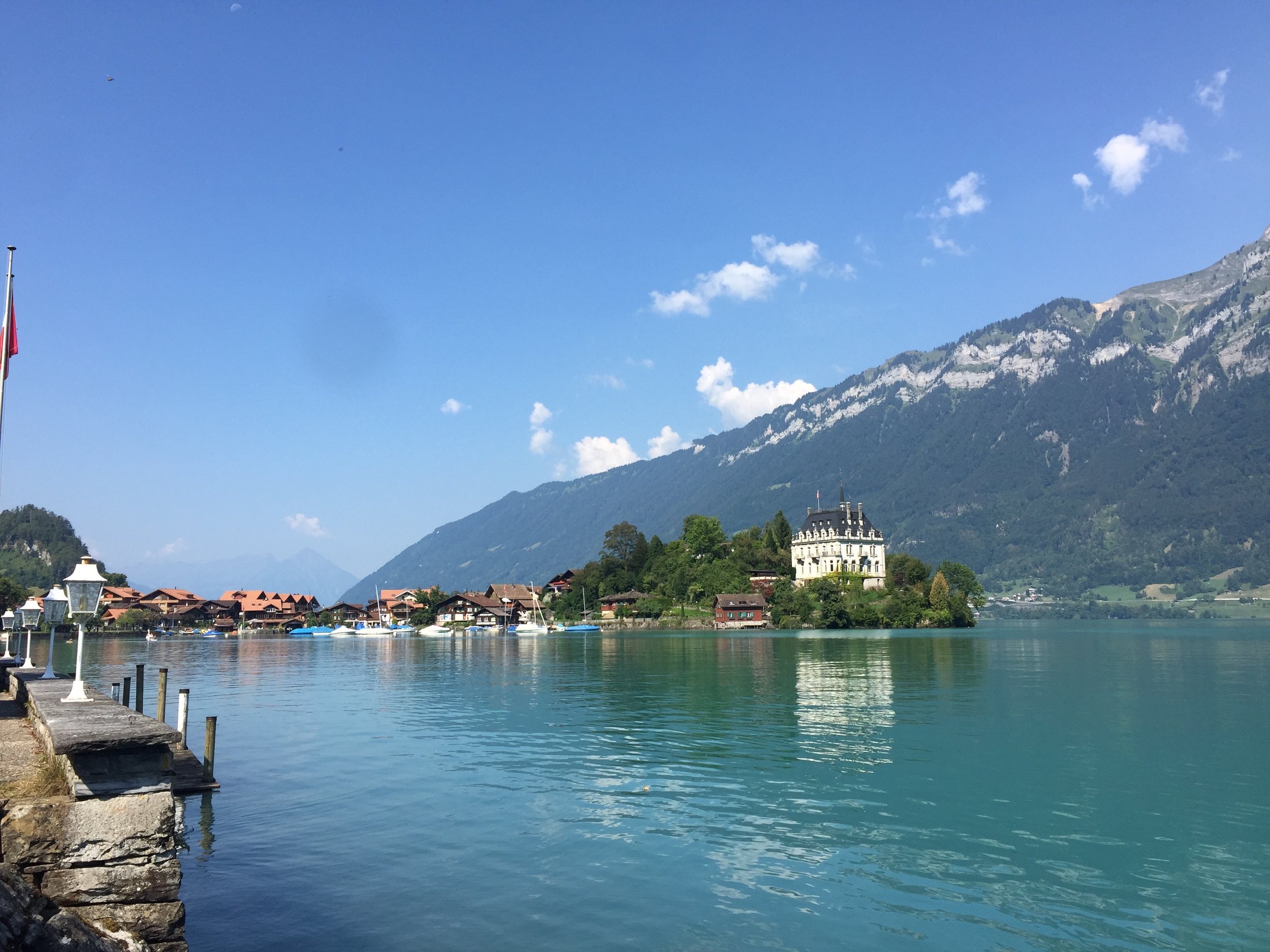
Reviews
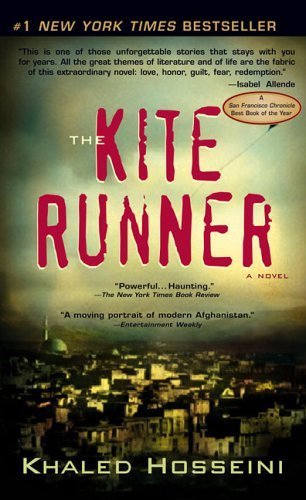
The Kite Runner
1970s Afghanistan: Twelve-year-old Amir is desperate to win the local kite-fighting tournament and his loyal friend Hassan promises to help him. But neither of the boys can foresee what would happen to Hassan that afternoon, an event that is to shatter their lives. After the Russians invade and the family is forced to flee to America, Amir realises that one day he must return to an Afghanistan under Taliban rule to find the one thing that his new world cannot grant him: redemption.

My Life on the Road
Gloria Steinem—writer, activist, organizer, and one of the most inspiring leaders in the world—now tells a story she has never told before, a candid account of how her early years led her to live an on-the-road kind of life, traveling, listening to people, learning, and creating change. She reveals the story of her own growth in tandem with the growth of an ongoing movement for equality. This is the story at the heart of My Life on the Road.

Z: A Novel of Zelda Fitzgerald
When beautiful, reckless Southern belle Zelda Sayre meets F. Scott Fitzgerald at a country club dance in 1918, she is seventeen years old and he is a young army lieutenant stationed in Alabama. Before long, the "ungettable" Zelda has fallen for him despite his unsuitability: Scott isn't wealthy or prominent or even a Southerner, and keeps insisting, absurdly, that his writing will bring him both fortune and fame. Her father is deeply unimpressed. But after Scott sells his first novel, This Side of Paradise, to Scribner's, Zelda optimistically boards a train north, to marry him in the vestry of St. Patrick's Cathedral and take the rest as it comes.
What comes, here at the dawn of the Jazz Age, is unimagined attention and success and celebrity that will make Scott and Zelda legends in their own time. Everyone wants to meet the dashing young author of the scandalous novel—and his witty, perhaps even more scandalous wife. Zelda bobs her hair, adopts daring new fashions, and revels in this wild new world. Each place they go becomes a playground: New York City, Long Island, Hollywood, Paris, and the French Riviera—where they join the endless party of the glamorous, sometimes doomed Lost Generation that includes Ernest Hemingway, Sara and Gerald Murphy, and Gertrude Stein.
Everything seems new and possible. Troubles, at first, seem to fade like morning mist. But not even Jay Gatsby's parties go on forever. Who is Zelda, other than the wife of a famous—sometimes infamous—husband? How can she forge her own identity while fighting her demons and Scott's, too? With brilliant insight and imagination, Therese Anne Fowler brings us Zelda's irresistible story as she herself might have told it.

Once Upon a River
Bonnie Jo Campbell has created an unforgettable heroine in sixteen-year-old Margo Crane, a beauty whose unflinching gaze and uncanny ability with a rifle have not made her life any easier.
After the violent death of her father, in which she is complicit, Margo takes to the Stark River in her boat, with only a few supplies and a biography of Annie Oakley, in search of her vanished mother. But the river, Margo's childhood paradise, is a dangerous place for a young woman traveling alone, and she must be strong to survive, using her knowledge of the natural world and her ability to look unsparingly into the hearts of those around her. Her river odyssey through rural Michigan becomes a defining journey, one that leads her beyond self-preservation and to the decision of what price she is willing to pay for her choices.
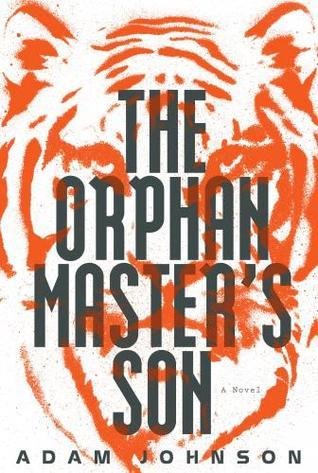
The Orphan Master’s Son
Pak Jun Do is the haunted son of a lost mother—a singer “stolen” to Pyongyang—and an influential father who runs a work camp for orphans. Superiors in the state soon recognize the boy’s loyalty and keen instincts. Considering himself “a humble citizen of the greatest nation in the world,” Jun Do rises in the ranks. He becomes a professional kidnapper who must navigate the shifting rules, arbitrary violence, and baffling demands of his Korean overlords in order to stay alive. Driven to the absolute limit of what any human being could endure, he boldly takes on the treacherous role of rival to Kim Jong Il in an attempt to save the woman he loves, Sun Moon, a legendary actress “so pure, she didn’t know what starving people looked like.”

With New Eyes
Heidi Siefkas lost her health, her career, and her marriage after she was struck by a one-thousand-pound tree branch. While she made great strides in her physical and emotional recovery in the months that followed—an arduous process that she chronicled in “When All Balls Drop” —Heidi wasn't content to merely survive her setbacks. The time was right to build a new life. One she could live on her own terms.
But what would a redesigned life look like? In her quest for answers, Heidi returned to her childhood home in Wisconsin, dove into the South Florida dating scene, revisited old flames in New England, sold her first home, jumped out of a plane, and traveled alone to South America. Every leg of her journey provided a healthy dose of perspective.
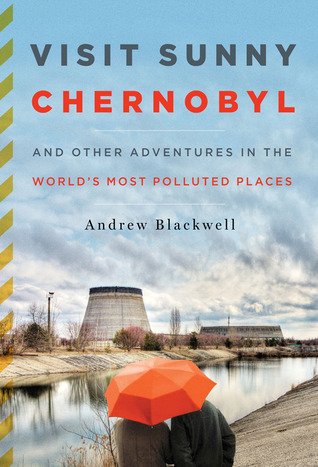
Visit Sunny Chernobyl
For most of us, traveling means visiting the most beautiful places on Earth--Paris, the Taj Mahal, the Grand Canyon. It's rare to book a plane ticket to visit the lifeless moonscape of Canada's oil sand strip mines, or to seek out the Chinese city of Linfen, legendary as the most polluted in the world. But in Visit Sunny Chernobyl, Andrew Blackwell embraces a different kind of travel, taking a jaunt through the most gruesomely polluted places on Earth.
From the hidden bars and convenience stores of a radioactive wilderness to the sacred but reeking waters of India, Visit Sunny Chernobyl fuses immersive first-person reporting with satire and analysis, making the case that it's time to start appreciating our planet as it is--not as we wish it would be. Irreverent and reflective, the book is a love letter to our biosphere's most tainted, most degraded ecosystems, and a measured consideration of what they mean for us.

The Collapse
On the night of November 9, 1989, massive crowds surged toward the Berlin Wall, drawn by an announcement that caught the world by surprise: East Germans could now move freely to the West. The Wall—infamous symbol of divided Cold War Europe—seemed to be falling. But the opening of the gates that night was not planned by the East German ruling regime—nor was it the result of a bargain between either Ronald Reagan or George H.W. Bush and Soviet leader Mikhail Gorbachev.
It was an accident.
In “The Collapse”, prize-winning historian Mary Elise Sarotte reveals how a perfect storm of decisions made by daring underground revolutionaries, disgruntled Stasi officers, and dictatorial party bosses sparked an unexpected series of events culminating in the chaotic fall of the Wall. With a novelist’s eye for character and detail, she brings to vivid life a story that sweeps across Budapest, Prague, Dresden, and Leipzig and up to the armed checkpoints in Berlin.
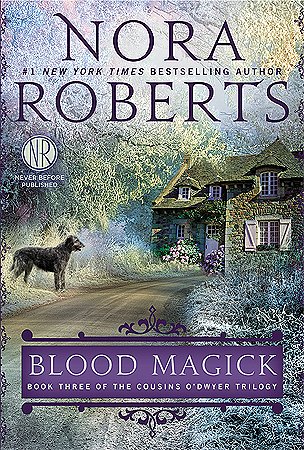
Blood Magick (The Cousins O’Dwyer Trilogy #3)
County Mayo is rich in the traditions of Ireland, legends that Branna O’Dwyer fully embraces in her life and in her work as the proprietor of The Dark Witch shop, which carries soaps, lotions, and candles for tourists, made with Branna’s special touch.
Branna’s strength and selflessness hold together a close circle of friends and family—along with their horses and hawks and her beloved hound. But there’s a single missing link in the chain of her life: love…
She had it once—for a moment—with Finbar Burke, but a shared future is forbidden by history and blood. Which is why Fin has spent his life traveling the world to fill the abyss left in him by Branna, focusing on work rather than passion.
Branna and Fin’s relationship offers them both comfort and torment. And though they succumb to the heat between them, there can be no promises for tomorrow. A storm of shadows threatens everything that their circle holds dear. It will be Fin’s power, loyalty, and heart that will make all the difference in an age-old battle between the bonds that hold their friends together and the evil that has haunted their families for centuries.
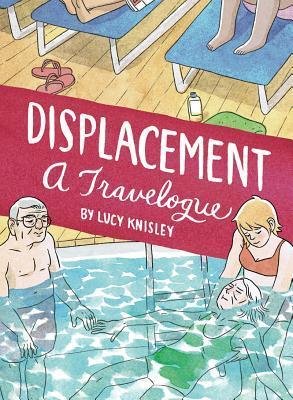
Displacement: A Travelogue
In her graphic memoirs, “New York Times” bestselling cartoonist Lucy Knisley paints a warts-and-all portrait of contemporary, twenty-something womanhood, like writer Lena Dunham (Girls). In the next installment of her graphic travelogue series, “Displacement”, Knisley volunteers to watch over her ailing grandparents on a cruise. (The book s watercolors evoke the ocean that surrounds them.)
In a book that is part graphic memoir, part travelogue, and part family history, Knisley not only tries to connect with her grandparents, but to reconcile their younger and older selves. She is aided in her quest by her grandfather s WWII memoir, which is excerpted. Readers will identify with Knisley s frustration, her fears, her compassion, and her attempts to come to terms with mortality, as she copes with the stress of travel complicated by her grandparents frailty

